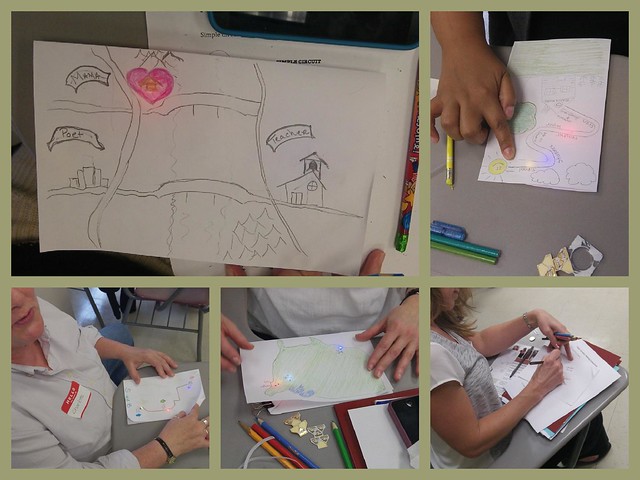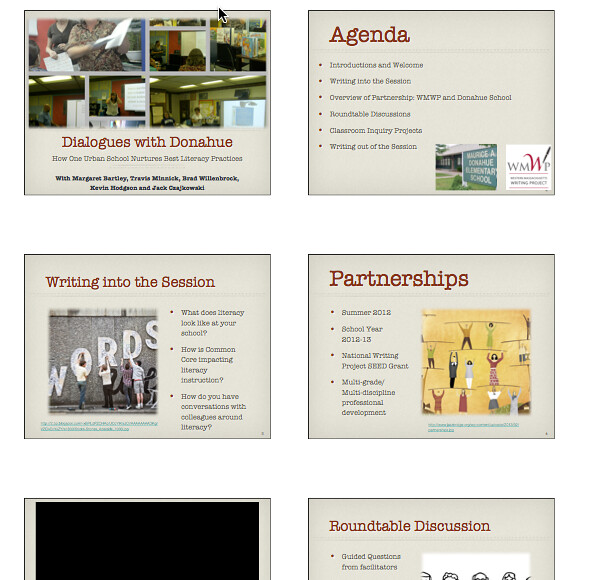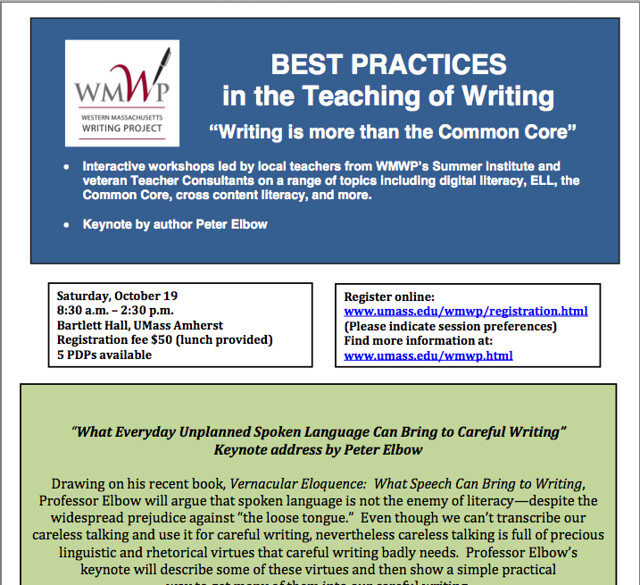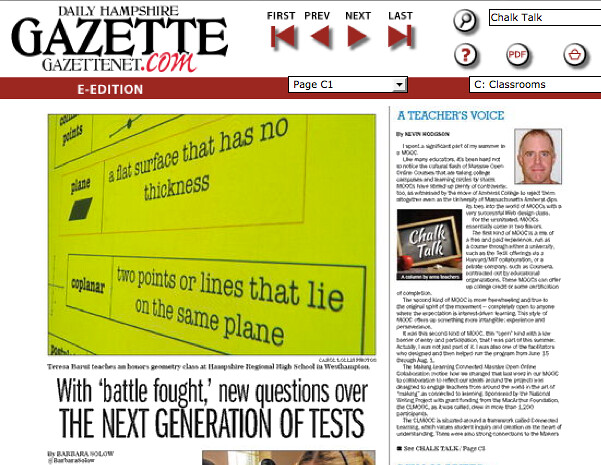
The other day, I volunteered to lead a family poetry workshop at Barnes and Noble to support our Western Massachusetts Writing Project. I didn’t know what to expect, so I gathered up a bunch of supplies for a Post It Sticky Note Poetry idea. I had a bunch of small mentor texts (haiku, couplets, shape poems, etc.) along with lots of art supplies.

I set up in the little staging area of the children’s section, still not sure who would come and participate. Now, remember, I teach sixth grade and spend my days in the midst of 11 and 12 year olds. And I have three boys of my own, two teenagers and one 9 year old.
So, imagine my surprise when I was surrounded by a group of five girls — ages 3 and 4 — with their parents for the poetry workshop. I was a fish out of water because clearly my plans for writing and understanding poetry styles would not connect with this group of energetic mostly-pre-writing girls. I was in a sixth grade mindset and that would not work here.
Luckly, I had stickers! Lots of stickers! And that led to some post-it poems, of a sort (well, more like drawings) and some basic rhyming games. Some of the girls could write some basic words, so we wrote rhymes. For others … it was all about the stickers and post-it notes.
That was OK but it reminded me (again) of the task before our early childhood colleagues who are often faced with a class full of young learners who might or might not have had preschool experience, might or might not have had parents read to them regularly, might or might not have had pre-writing experiences, and the range of literacy was staggering in that little group.
It was fun and enlightening, and certainly a very different kind of teaching experience for me, one that reminded me to appreciate the kinds of days that my colleagues often have, and how grateful I am as a sixth grade teacher for all the work that gets done in the years before my students reach me to get them ready for the rigor of our learning.
Thank you, teachers.
Peace (with stickers)
Kevin






